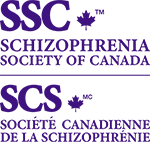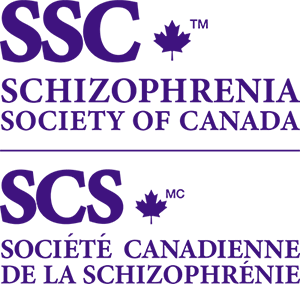Our Goals
What is advocacy?
Advocacy, simply put, is defined as telling a story to a decision-maker, through various means, in order to compel that person to do something. A mental health advocate, according to Therese Bouchard, is anyone who is a voice for those suffering from depression, anxiety, or any other mental disorder who disseminates a message of hope and support. In the area of mental health, key advocacy priorities include improved access to services and benefits & supports for people living with mental illness, and most commonly are directed towards government and decision-makers.
What does the Schizophrenia Society of Canada advocate for?
At the heart of our advocacy efforts is our mission: to build a Canada where people living with early psychosis and schizophrenia reach their potential.
This mission encompasses both the person living with the mental illness and their family members and friends, and focuses on helping them to be their best selves. One’s “potential” will look different depending on the individual – this language is open-ended, inclusive, and aspirational yet achievable. It’s deliberately flexible, so that individuals and their networks of support can work towards it in the way that is best for them.
Our organization is committed to improving the quality of life of those affected by these illnesses through education, policy advocacy, and research at both the community and national levels.
SSC is committed to the following principles:
- Persons with enduring mental health problems have the right to appropriate care, treatment, rehabilitation, and recovery within the least restrictive environment. They have the right to remain in their own community wherever possible.
- Government, caregivers, the voluntary sector, and individuals must work toward improved quality of life for those living with a mental illness, as well as their families and friends.
- Continuing public education is necessary to fight the stigma associated with mental illness. We are seeking to build a destigmatized geography with the goal of reducing discrimination and increasing social inclusion for those we represent.
- Community reinvestment is a fundamental building block in treatment, rehabilitation, and recovery.
- The voices of both those with lived/living experience and their families possess the capacity for positive change – our aim is to work within a reciprocally helpful relationship.
- As an organization, we strive to be an inspirational visionary for hope.
- We hold a conviction that things can be better: this is our philosophy, our heartbeat, and the key message of our advocacy. When we create better care for mental health within the larger healthcare system, we get closer to realizing our mission of building a Canada where people living with early psychosis and schizophrenia achieve their potential.
Who Does the Schizophrenia Society Partner With?
Our Partners
The SSC’s advocacy initiatives are directed by the Advocacy Committee of the Board of Directors which works with our CEO. SSC networks with other national mental health organizations, people or groups who influence policy and government funding, corporate & employer groups, and younger generations. Click here to meet some of our valuable advocacy partners.
“Even as we call for increased resources for mental health problems and illnesses, we must make the very best use of our current funding to avoid the pitfalls of duplication of effort and missed opportunities. We must be willing to set aside individual agendas and tear down silos. I believe that by modeling this kind of partner-leadership, we can signal to all entities in the sector that what we do, together, matters a whole lot more than who did what.”
— Louise Bradley, president and CEO, Mental Health Commission of Canada
Advocacy Toolkit
Check out these guides to learn how you can help to advocate for those affected by early psychosis and schizophrenia:
Advocacy Updates
Budget 2021 Submission
In February 2021, SSC submitted the following recommendations to the Federal Government:
Recommendation 1: That the Federal Government evaluate current federal policing procedures for training in mental health crisis intervention and that new training programs be considered. Standardized, sustained, and frequent training for RCMP and other law enforcement officers in de-escalation and mental health crisis response is urgently needed to save lives.
Recommendation 2: That the Federal Government improve access to mental health care through a Mental Health Parity Act. Mental health care supports should be broadly inclusive of individuals with schizophrenia and early psychosis.
Recommendation 3: That the Federal Government create and evaluate measurement performance for spending for primary care for those living with schizophrenia and other psychotic disorders. Special attention should be paid to primary care administered to Indigenous peoples through the First Nations and Inuit Health Branch and this is especially relevant during the COVID-19 pandemic as those living with schizophrenia are twice more likely to contract the COVID-19 virus.
To read SSC’s full Pre-Budget Submission click here.
CHANGE YOUR LIFE TODAY
Your mental illness does not define you. Your strength and courage does.


